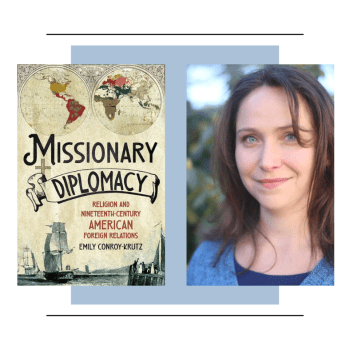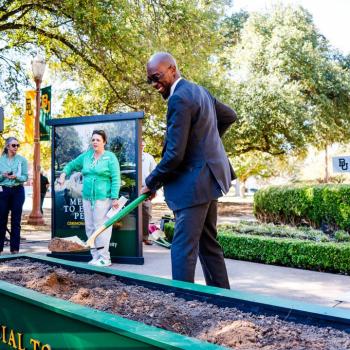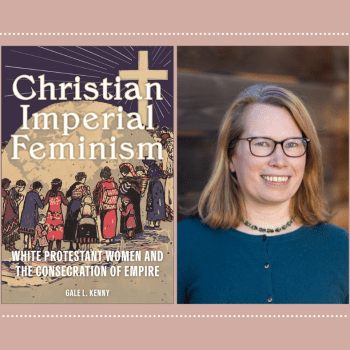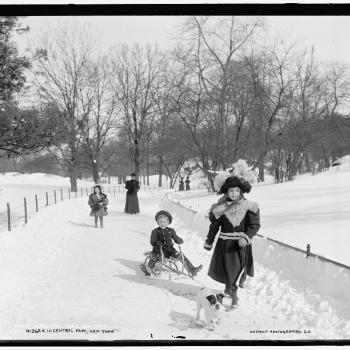
Last week, on one of the holiest days of the Christian year, over 120 families at a predominantly Asian American church in New Jersey gathered for their Good Friday Service to pray, sing, and commemorate the crucifixion of Christ. But the peaceful online service was interrupted by Zoom-bombers, who blasted pornographic images across the screen and assailed listeners with ear-splitting screams and racist slurs, including cries of “I hate Asians!” and “Chinks!”
A member of the congregation described the incident to AsianFeed:
“I saw children crying and covering their ears, moms rushing to grab and shield their kids. Over thirty families left the call fearing for their safety, with the rest sitting in shock and horror, shaking with rage and fear…I am devastated that the perpetrators orchestrated the attack to threaten a community in their own homes, violating them and their deeply held commitments. After the attack, I did not feel safe in my own dining room where I had been watching the service with my husband. This incident goes to show how Anti-Asian hate does not stop when we come home from the streets and close the door behind us. It follows us, finding its way into our most vulnerable and sacred places, and for that reason, I am determined to fight even harder and speak louder about violence against people of AAPI descent.”
The past year has seen a surge of hate and violence directed toward Asian Americans. Stop AAPI Hate has received more than 3,800 reports of anti-Asian racism since it began to document incidents in March 2020, and according to the Center for Hate and Extremism, hate crimes against Asian Americans in the largest cities in the United States increased 145% between 2019 and 2020, while hate crimes overall have declined. Amid these trends, Asian American religious institutions have not been immune from racist attacks. As the churchgoer in New Jersey put it, anti-Asian racism has afflicted “our most vulnerable and sacred places.”
It is important to recognize that attacks on churches, temples, and mosques, as highly visible centers of Asian American life, are not new. There is a long history of attacks on Asian American religious institutions, and these events are part of the long history of racism and violence against Asian Americans in the United States. Moreover, it is critical that we understand that Asian American religious institutions have not only been the targets of racism – they have also been sites of resistance. The churchgoer in New Jersey closed her statement not with an expression of sadness, but with a spirited resolve to “fight even harder and speak louder about violence against people of AAPI descent.” In experiencing the pain of racism, Asian Americans have often found the power to resist, often doing so in and through religious communities.
The Good Friday Zoom-bombing of the Asian American church in New Jersey was not the first attack on Asian American churches during the Covid-19 pandemic. For example, in Scottsdale, Arizona, an Asian American church was vandalized by people who destroyed the church’s wiring, pipes, and doors. And Jeff Liou, national director of theological formation for InterVarsity Christian Fellowship, told Religion News Service that vandals had painted racist graffiti near his church.
There have also also been several attacks on Buddhist temples. Vandals smashed windows, destroyed lanterns, and set fire to property at Higashi Honganji Buddhist Temple in Little Tokyo in Los Angeles. In Austin, Texas, vandals ruined statues and furniture at the Thien Hau Temple, and in Montreal, vandals shattered religious objects at two Buddhist temples. In many of these attacks, the precise motive behind the attack was not clear. However, Louis Le, a volunteer at the Chua Quan Am temple, one of the temples vandalized in Montreal, linked the destruction in his community to rising anti-Asian sentiment during the Covid-19 pandemic. “My theory is that it’s because of the coronavirus at the moment,” Le told Radio Canada International. “People associate it with the Asian community. They’re prejudice[d] and unjust.”
These incidents of arson and vandalism are not isolated incidents. Throughout American history, Asian American churches, temples, and mosques have been targeted in attacks, especially during periods of rising hostility against Asian and Asian American people.
For example, while Japanese Americans were incarcerated during the Second World War, Japanese American Buddhist temples were vandalized. As Duncan William discussed in American Sutra, the vandalism at Nichiren Buddhist Temple in Los Angeles was so severe that the U.S. government allowed for one member of the temple to leave Amache camp in Colorado to return to California and survey the damage. She found the temple destroyed: “Nothing was untouched, sewing machines were ruined, furniture broken, mirrors smashed to smithereens, broken glass from breakable articles, household goods scattered shelter-skelter, trunks broken beyond repair.”
Later in the twentieth century, a different group of Asian American Buddhists—Cambodian American Buddhists—found their temple vandalized. During the 1970s, ‘80s, and ‘90s, Southeast Asian refugees often experienced intense racist backlash as they were resettled in the United States, and in Portland, Maine, local opposition to the presence of Southeast Asian refugees animated efforts to prevent the building of a Cambodian American Buddhist temple. With the aid of some allies, including a local Quaker group, Cambodian Americans in Portland eventually succeeded in establishing the Watt Samaki Buddhist Center, where the community gathered for special occasions, such as weddings and festivals. In 1993, however, this center of joy became a site of hate, when vandals stole the temple’s electronic equipment and graffitied its wall with a hateful message: “Dirty Asian, Chink, Go Home.”
The surge of Islamophobia during the War on Terror has given rise to particularly brutal attacks on Asian American religious institutions. Mosques all across America have been vandalized, burned, and bombed. (So many mosque attacks have occurred in the past two decades that the ACLU keeps an updated map of incidents of violence and discrimination targeting mosques in every state.) Sikh Americans, also impacted by Islamophobia, have found that their religious institutions have also been subjected to vicious acts of hate and violence. In 2012, for example, a white supremacist man gunned down six people and injured four others at a Sikh gurdwara in Oak Creek, Wisconsin.
But the long history of attacks on Asian American religious institutions reveals that churches, temples, and mosques are not merely places were people are vulnerable and victims of violence and racism. Religious institutions are also settings where Asian American religious people have gathered to find comfort, community, and courage to resist. For Asian Americans and for other ethnic and racial communities, churches, temples, and mosques are more than religious institutions—they are community institutions that are centers of power.
Asian American religious institutions have taken the lead in organizing responses to recent acts of racism and violence. For example, in the wake of the murder of six Asian American women in Atlanta, religious groups coordinated efforts to honor the victims and bring people together to heal. The Asian American Christian Collaborative, for example, partnered with local churches and organizations to hold a “National Rally for AAPI Lives and Dignity,” with prayer rallies in fourteen cities across the country. In Los Angeles, Asian American Buddhists organized and participated in a local interfaith vigil with community leaders and elected officials. And in Madison, Wisconsin, Freedom, Inc. organized a gathering that brought together Buddhist monks and Hmong elders who did healing rituals to honor victims of the Atlanta attacks.
Asian American congregations have responded to recent racism and violence not only through prayer, but through calls for deeper political engagement. For example, Pastor Han Byung-chul from the Korean Central Presbyterian Church of Atlanta, told Politico that recent acts of hate and violence have been “an awakening moment for Asian Americans.” He and other Korean American pastors have urged Korean American Christians to address racism and discrimination by getting involved in the political process. As Pastor Lee Jun-hyup of Immanuel Korean United Methodist Church in Marietta, Georgia, put it, “It’s not about specific politicians or political parties. We want an overarching understanding that we need to create a society where immigrants and Asians aren’t discriminated [against]…Korean churches and Asian American groups will likely put more pressure on lawmakers to implement systematic changes to address these issues.” Similarly, Pastor Michael Lee of All Nations Community Church in Bellevue, Washington, urged Asian American Christians to focus on advocating for policy change and building political power. “All this hype without policy change is just hype. It’s just emotions,” Lee said. “And so I think the only way to make lasting changes is through policy changes. Having a seat at the table with lawmakers, with elected officials locally, statewide, nationally … that’s absolutely essential.”
Although the events of the past year might have caused some Asian American Christians to experience a political “awakening,” the truth is that there is a long history of Asian Americans working for justice through their religious institutions. For example, as Stephanie Hinnershitz chronicled in Race, Religion, and Civil Rights, deep religious faith animated the civil rights and labor rights activism of Filipino, Japanese, and Chinese students studying in American universities on the West Coast in the early twentieth century. These students used their shared Christian identity to unify their diverse members and advocate for a range of measures that advanced their vision of “Christian citizenship” and civil rights. They believed that a commitment to “Christian citizenship” called them to address racism and prejudice at their home universities, protest discriminatory immigration laws and unfair labor practices in the United States, and address global problems such as nationalism and imperialism.
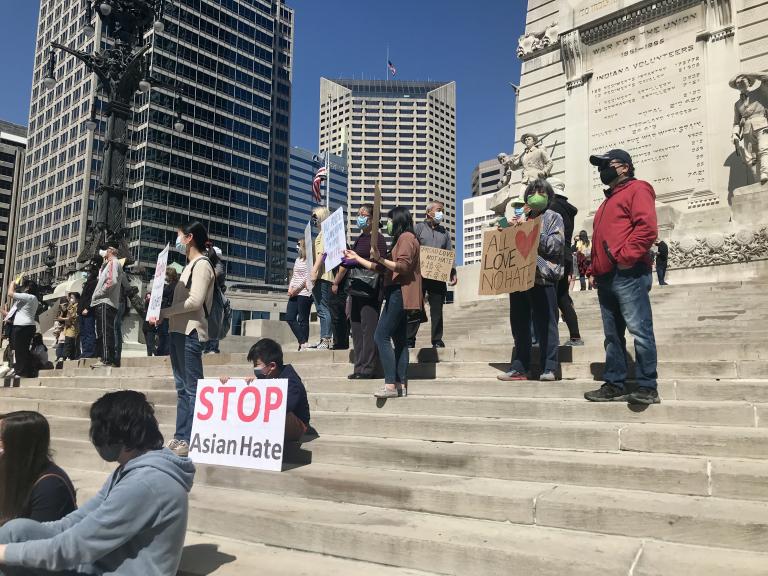
The traumatizing attacks in Atlanta and beyond have found many Asian Americans asking, what can we do?
There are many practical things that we can do to address rising anti-Asian sentiment and build communities that are safe and inclusive. We can invest in community programs to ensure that Asian Americans—especially the most vulnerable members of our community, our elderly and our youth—are connected with mental health support. We can ensure that our schools teach about Asian American experiences and offer programs to address racism and bullying in schools. We can encourage people to take bystander intervention training. We can encourage our elected officials to use responsible language about the coronavirus rather than stigmatizing rhetoric that harms Asian Americans. We can encourage state and local governments to create government institutions such as state advisory commissions and local human relations commissions, which help to ensure that elected officials understand the needs of their diverse constituents, including Asian Americans.
But as I consider the words of the churchgoer who witnessed the Zoom-bombing of her church’s Good Friday service, I think the first step might be even simpler. As this woman reflected on how anti-Asian hate has touched “our most vulnerable and sacred places,” she felt “determined to fight even harder and speak louder about violence against people of AAPI descent.” This woman is part of a long history of Asian American religious people who have experienced the very particular pain of experiencing a hateful, racist attack on a beloved religious community that is core to one’s identity and central to how one finds love, peace, and goodness in a broken world. But she is also part of a long history of Asian American religious people who have found faith in their fear and power in their pain. Today, just as they have in the past, Asian American religious communities are embracing the trauma of the current moment into an opportunity for transformation.








